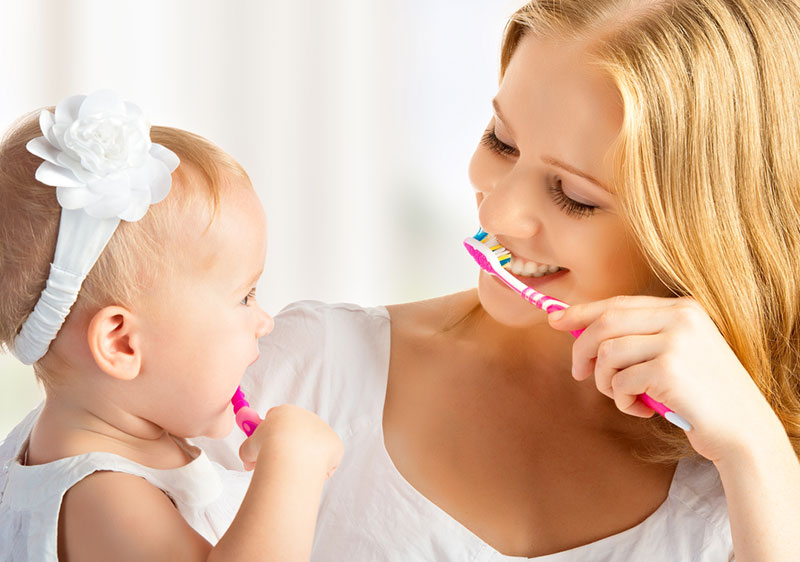
Signs of Baby Teething
Having a new baby in your life is an exciting thing! However, after three to four months, your child may start to show different behaviors even though a tooth will not show up for another few months! Some behaviors that act as signs that your baby’s teeth are coming in are excessive drooling, crankiness, coughing, cheek or ear pulling, night waking and sticking objects into their mouths. While these can be signs for teething, it is important to consult a doctor to make sure these symptoms are not caused by something else.

During the teething process, babies will often chew on various objects to become more comfortable. With the extra amount of chewing, this can cause the child to drool a lot. Excessive drooling during baby teething can cause a rash on the chin as well as cause the child to cough and gag. The rashes are usually not an issue unless it starts to cause pain or has open sores that start to bleed. If this occurs, it is important to see a pediatrician to make sure it is nothing too serious. When they introduce new objects into their mouth, they introduce a lot of new germs that can cause a child to get sick. As new teeth start to come in, it can cause a lot of pressure and discomfort for the baby along his gum line. The process can cause irritability and can cause them to wake up in the middle of the night.
There are many different ways to help your baby feel more comfortable while going through the teething process. Giving you child a teething ring and cold foods is a good start. You can also massage their gums with your own fingers. However, it is important to wash your hands before you massage their gums. You could also give your child some Infant Tylenol or acetaminophen but before giving these drugs to your child, please consult a doctor to make sure it is alright to give him that.
The teething process can be very difficult to you and your child. It is important to talk to a pediatric dentist to understand what is going on in your child’s mouth. In order to relieve some pain that your child is feeling, you could massage their gums and give them a teething ring. It is important to understand the symptoms of teething so you can comfort your child as much as you can.

